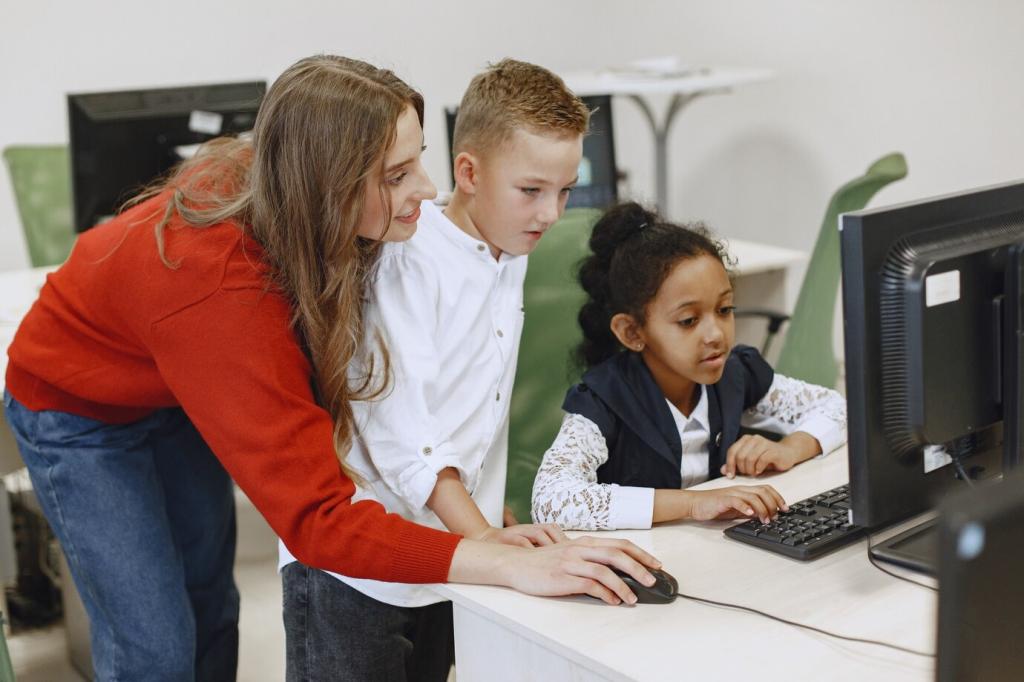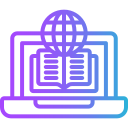Digital Literacy as a Core Component of Education Reform
Chosen theme: Digital Literacy as a Core Component of Education Reform. Join us as we reimagine classrooms where every learner navigates information, tools, and technology with confidence, empathy, and purpose—so they can thrive in a rapidly changing world. Subscribe and share your perspective to help shape this movement.
Why Digital Literacy Is Non-Negotiable in Education Reform
Students now read, write, and reason across screens, data, and networks as naturally as they once did with paper. Making digital literacy core ensures they question sources, model solutions, and communicate ethically. Comment with one skill you believe every graduate must master.
Schools that integrate digital literacy with strong pedagogy report gains in engagement, deeper inquiry, and transfer of knowledge to real problems. It is not the device, but the discipline. Share any classroom evidence or projects that changed minds in your district.
Maya struggled with essays until she learned to evaluate sources, annotate online texts, and storyboard multimedia arguments. Her voice sharpened, her confidence soared, and her history project went local-viral. Do you have a Maya story? Post it to inspire other educators.
Empowering Teachers to Lead Digital Literacy
Coaching, co-planning, and micro-credentials
Short, evidence-based modules paired with peer coaching help teachers embed digital literacy into authentic lessons. Co-planning time turns theory into tomorrow’s activity. What micro-skills—fact-checking, media remixing, data storytelling—would make the biggest difference for your students?
A veteran teacher’s reboot
After twenty years, Mr. Patel feared tech would erase his best routines. Instead, a mentor showed him how digital annotation deepened Socratic seminars. He now models healthy skepticism, citing sources in real time. Share your own reboot moment to encourage colleagues.
Assessing teacher growth with purpose
Portfolios of lesson artifacts, reflections, and student work demonstrate real teacher growth in digital literacy far better than checklists. Celebrate progress publicly, not just compliance. Would your school embrace portfolio-based appraisal? Reply with ideas that would make it doable.

Equity, Access, and the Infrastructure for Opportunity
Shared carts help, but reliable one-to-one access and take-home connectivity transform practice. Community Wi‑Fi, library hotspots, and low-cost broadband close gaps. How might your city, district, or parent group expand access this semester? Share an actionable idea others can borrow.

Digital Citizenship, Safety, and Ethics
Fighting misinformation with method
Teach lateral reading, source triangulation, and reverse image searches as everyday habits, not special events. Model how to pause before sharing. What verification routine do your learners remember most? Comment with a step-by-step that others can replicate tomorrow.
Privacy, data footprints, and consent
Students deserve clarity on what data platforms collect and how to set permissions. Practice strong passwords, passkeys, and two-factor authentication. Ask, document, and respect consent. What privacy conversation sparked the biggest aha moment in your class?
Bias awareness in algorithms and AI tools
From search results to recommendation feeds, algorithms reflect human choices and data histories. Let students probe bias, test prompts, and compare outputs. Invite them to design fairer rules. Share an activity that made algorithmic bias visible without fear or shame.
Curriculum Integration and Authentic Assessment
Pair environmental science with data dashboards, language arts with podcasting, and civics with community fact-checking. Students research, prototype, and publish for real audiences. Tell us a prompt that sparked genuine inquiry—and we will feature it in our next roundup.
Curriculum Integration and Authentic Assessment
Digital portfolios showcase drafts, feedback cycles, and final products, revealing growth and metacognition. Rubrics can value evidence, originality, and ethical use of media. How do you manage portfolio logistics at scale? Share platforms, routines, or reflection prompts that worked.


Family and Community Partnerships for Lasting Change
Parent workshops that feel welcoming
Offer multilingual sessions on media balance, privacy settings, and supporting research at home. Provide childcare and hands-on practice, not lectures. Invite questions without jargon. What topic would most help caregivers in your community? Suggest it and we will create a guide.
Intergenerational learning moments
Students can interview elders, digitize community histories, and teach secure messaging. Elders can teach patience, context, and local wisdom. These exchanges humanize technology. Share one intergenerational activity that strengthened relationships and sharpened digital literacy together.
Local partners and real-world briefs
Libraries, newsrooms, and civic groups can pose authentic problems: data visualizations, myth-busting campaigns, or accessibility audits. Students deliver public value while practicing ethics. Which partner would you approach first? Tag them and start the conversation today.
Looking Ahead: Sustainable, Humane Digital Literacy
AI literacy with human judgment
Treat AI as a partner for drafting, exploring patterns, and generating options—while foregrounding citation, verification, and originality. Students should explain decisions, not just outputs. What classroom norm keeps AI use transparent and accountable? Share it to help others adopt wisely.

